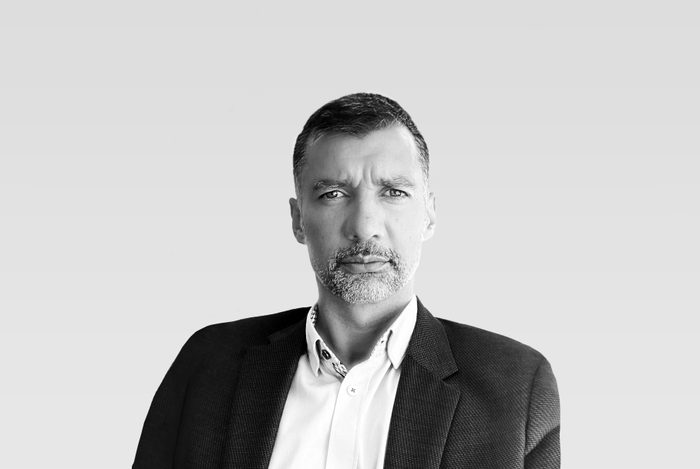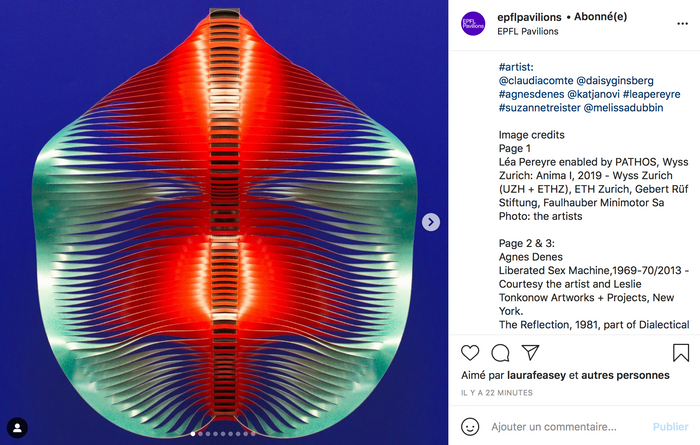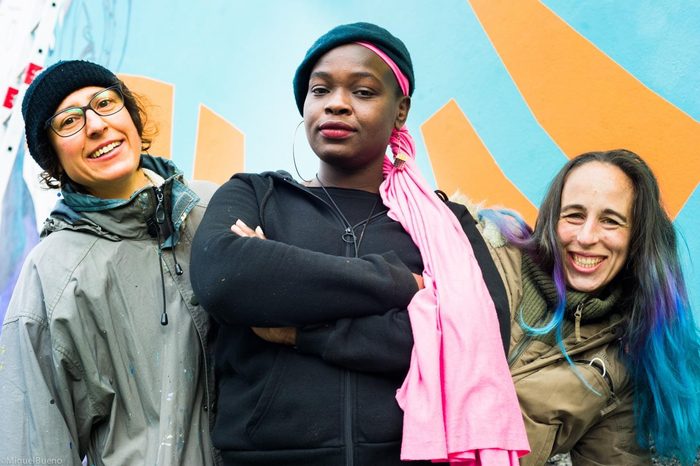Good morning, this is Zelda, inviting you to a very special audiovisual edition of our science & tech newsletter. We'll start by diving into the latest CyberPeace Institute report, with Stéphane Duguin, in a new episode of the Geneva Solutions podcast.
We'll then continue to celebrate women in tech, getting inspiration from the guests present at the International Film Festival and Forum on Human Rights (FIFDH) this week. We'll reflect on sexism and algorithms, with University of Geneva professor, Isabelle Collet.
And before leaving you, as a special treat, a video interview with the young and creative Senegalese activist, Zeinixx. She'll discuss the importance of choice and positive messages, as she takes part in a colorful graffiti at the heart of the Geneva. |
|
Science & Technology News
|
|

Stéphane Duguin, CEO of the CyberPeace Institute.
|
|
🌐 What to do about Big Tech?
Just ten years ago we were celebrating social media as a liberating force during the Arab spring. Now the UN Human Rights Commissioner is warning about the spread of online hate speech.
Swissinfo.ch (EN)
|
|
Here's what else is happening
|

Léa Pereyre enabled by PATHOS, Wyss Zurich: Anima I, 2019. Source: EPFL Pavilions.
|
|

Graffiti artists Zeinixx, Amika and Nadia Seka. Source: FIFDH. Photo: Miguel Bueno.
|
|
🎥 Zeinixx, graffiti for equality.
Senegalese graffiti artist Zeinixx visited Geneva where she created with two Geneva artists, Amikal and Nadia Seika, a giant fresco of a woman on a wall at the heart of the city. A contribution to the Geneva Week for equality and the 19th edition of the FIFDH, the fresco recognises the female voice in public space. She opens up to us about finding her place as a woman, an artist and an activist.
Geneva Solutions (EN)
|
|
|
Anticipatory reads by GESDA
|
|

|
|
A big explosion!
That is what Starship SN10, the giant rocket developed by Elon Musk’s SpaceX company, ended up producing last week, on its third attempt to launch and land back. It touched ground vertically but blew up shortly after. Another failure, grumpy observers would say. A fast and immense step closer to soon having a spacecraft that is able to bring people to the Moon, then Mars. People by tens, hundreds, if not thousands - at least that is the dream of the Californian tech mogul. But what then? What might be the rules agreed by all to explore and conquer space, starting with the neighbouring planets?
As the following article nicely describes, the Outer Space Treaty, signed in 1967, asserts that “celestial bodies and outer space were not there for the taking; no party to the treaty was to claim sovereignty over space, the planets, or other objects in the solar system.” That was 54 years, in the early days of the space age. Now, with the development of technologies, including space weapons, the game is changing, so that, in the military field at least, the United States and allies are already drafting language in support of an international effort to adopt rules of behavior in space.
But, SpaceX represents a new, dynamic and manifold category of players in the new space race: the private companies. Which, unlike governments, haven’t signed the Outer Space Treaty. “A new, modern treaty similar to the Outer Space Treaty would be a good starting point for ensuring harmony between nations, fair practices by companies, and the well-being of both space travelers and those of us who remain on Earth”, pleads SingularityHub. Let’s just hope its writing and signing will be faster than the development and testing of the next Starships – Elon Musk promised an orbital flight by the end of this year – so that near space doesn’t become the next Far West.
- Olivier Dessibourg
|

This selection is proposed by the Geneva Science and Diplomacy Anticipator
GESDA, working on
anticipating cutting-edge science and technological advances to develop innovative and inclusive
solutions for the
benefit of the planet and its inhabitants.
|
|
📍12 March | Space, that lawless place.
Space law consists of treaties drawn up during the Cold War and ratified almost fifty years ago. Today, it seems outdated and incapable of providing a framework for the exploitation of space resources or addressing the crucial issues of satellite-related pollution.
FIFDH (EN)
|
|
|
GS news is a new media project covering the world of international cooperation and development. Don’t hesitate to forward our newsletter!
Have a good day!
|

|
|
Avenue du Bouchet 2
1209 Genève
Suisse
|
|
|
| |












